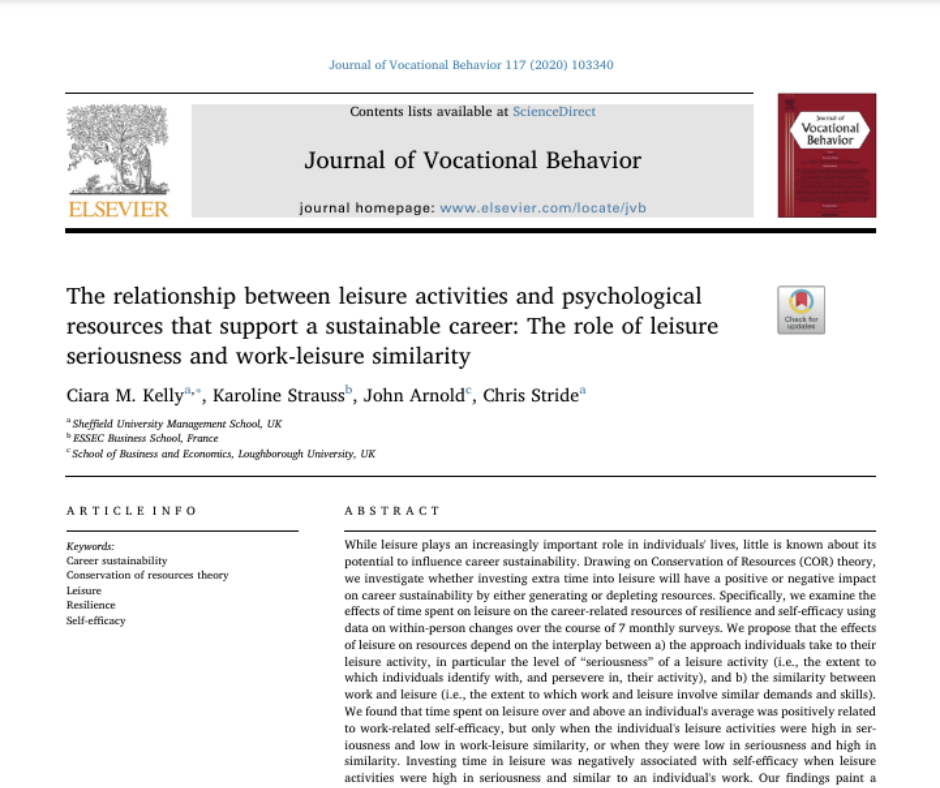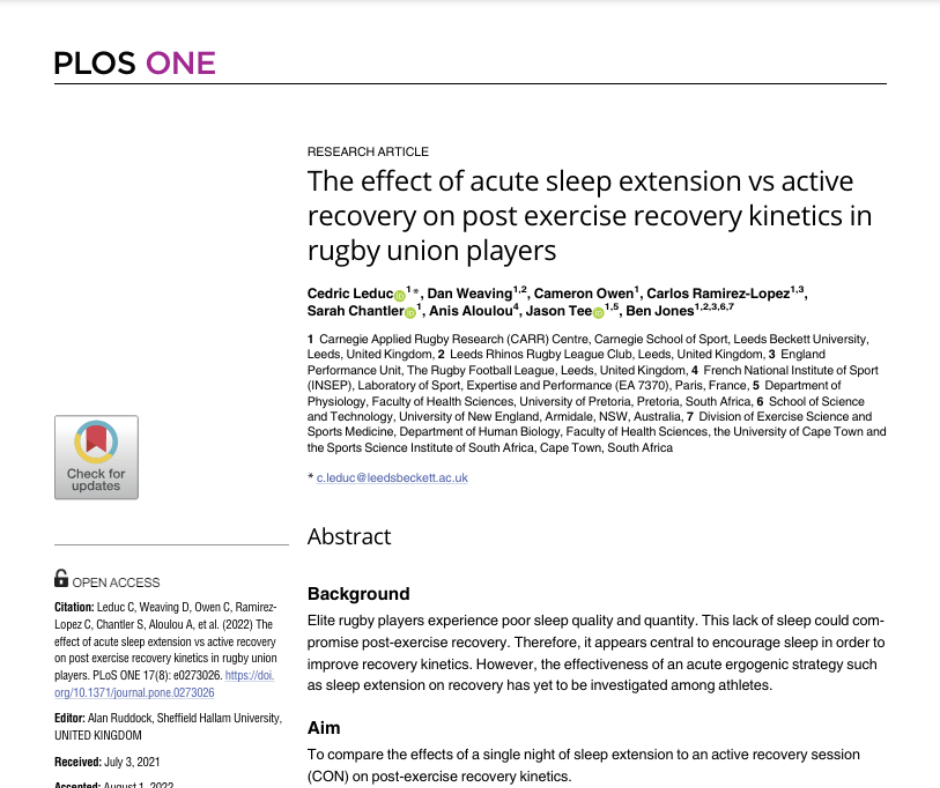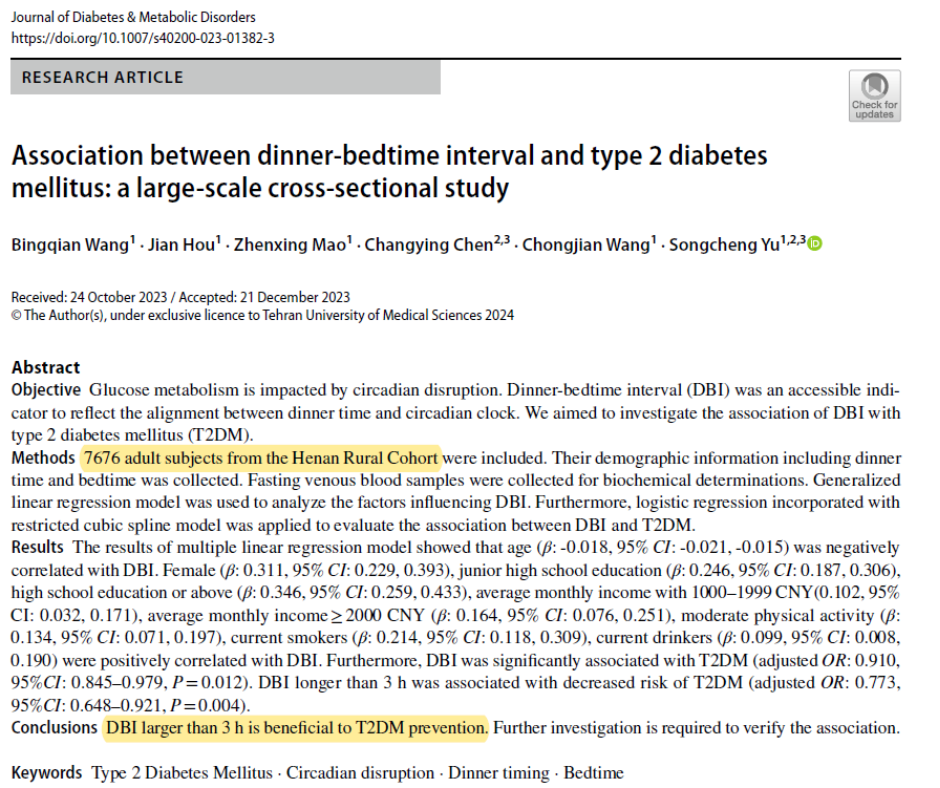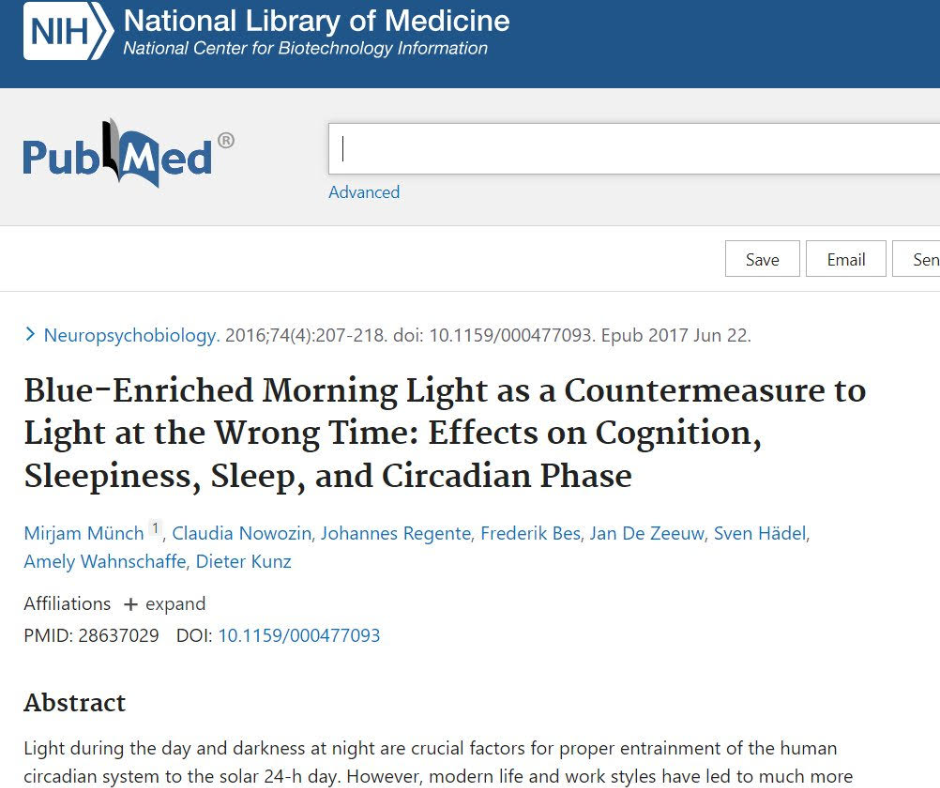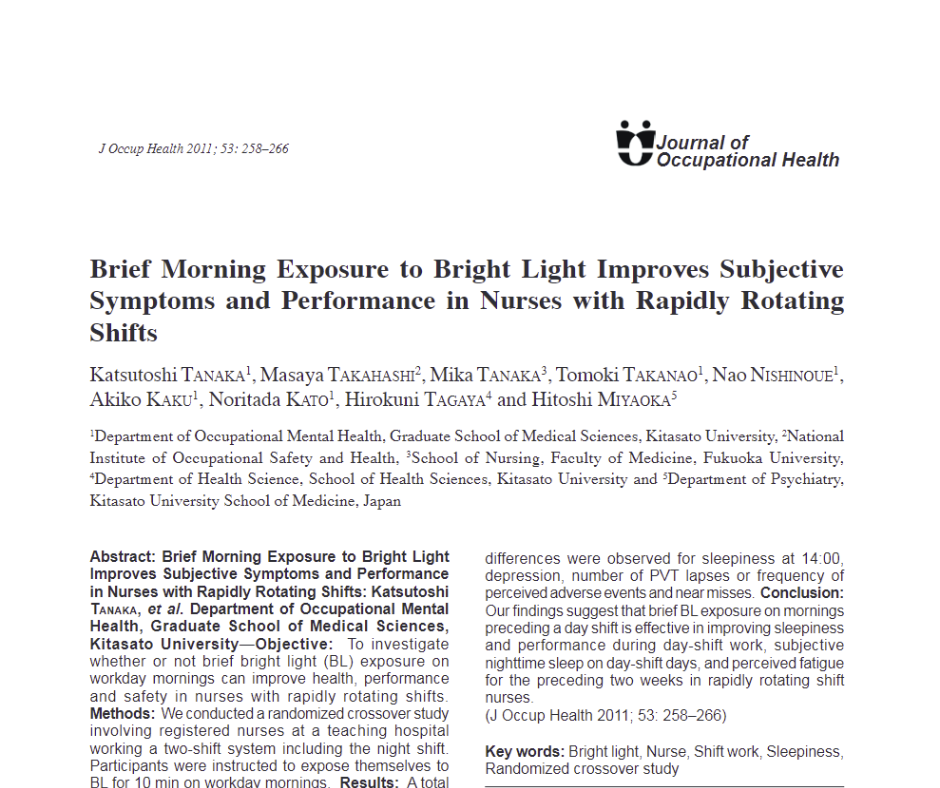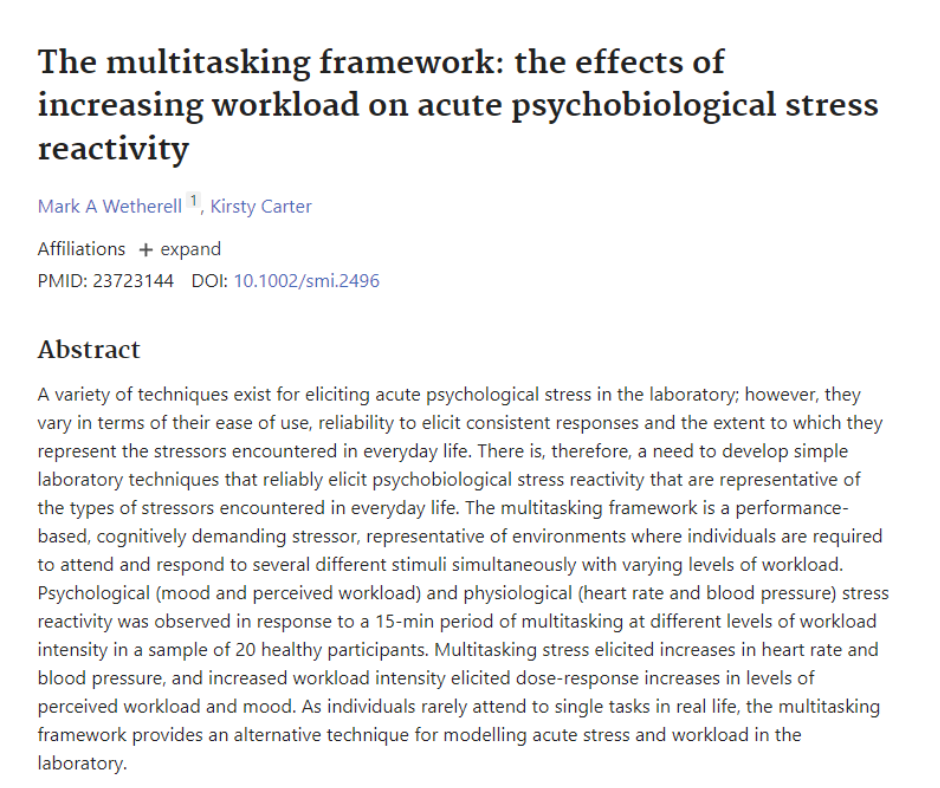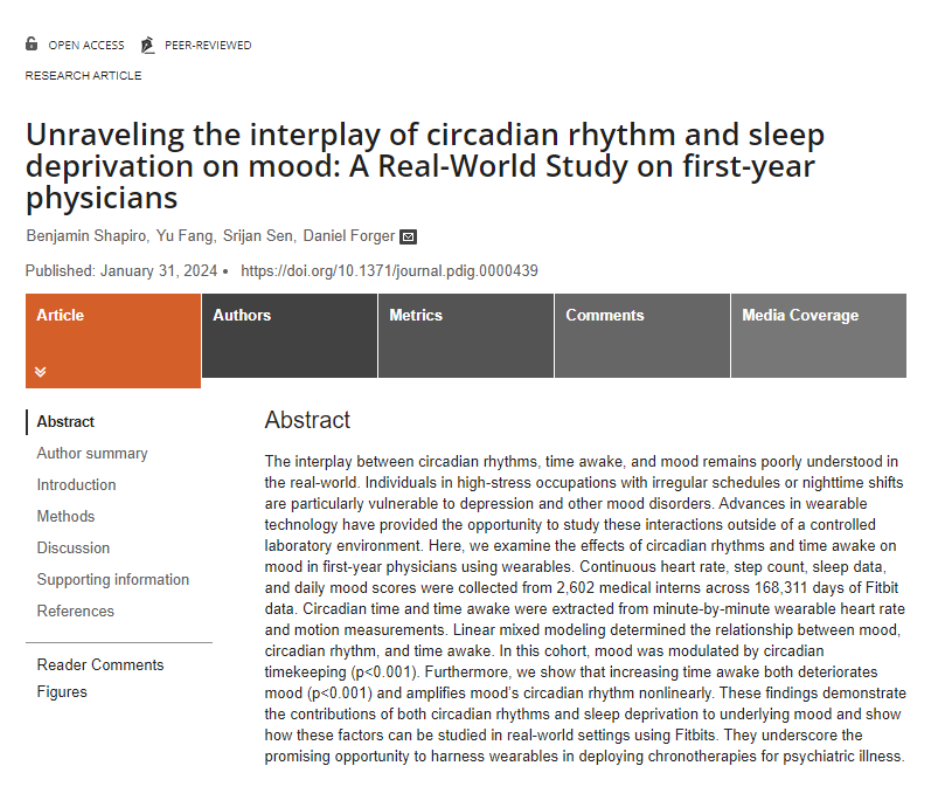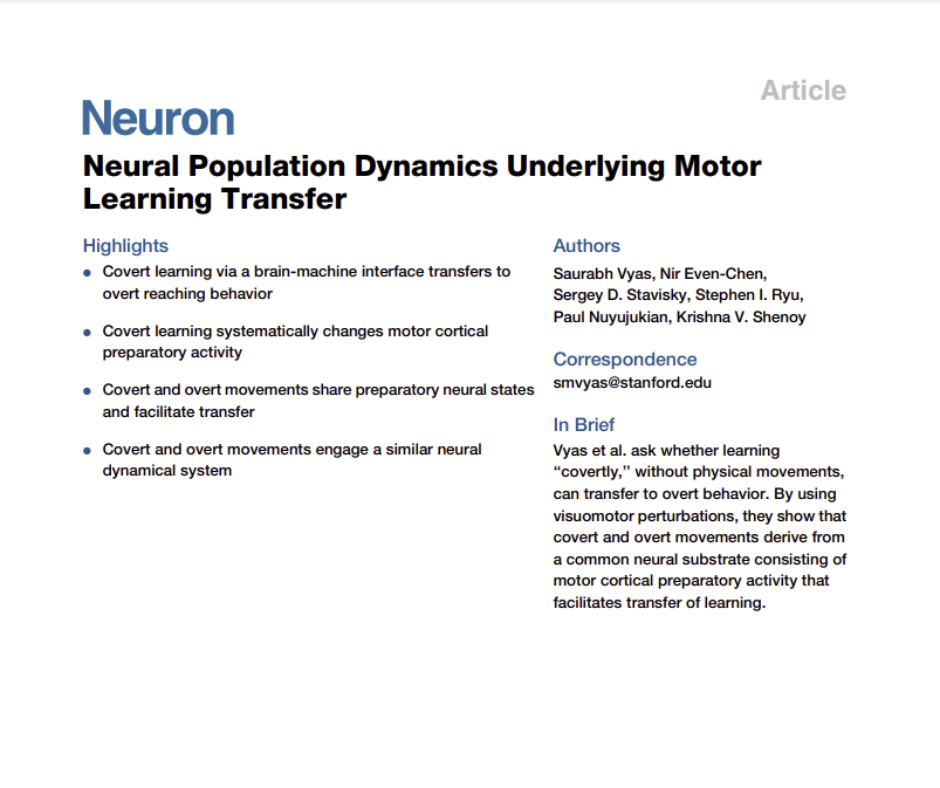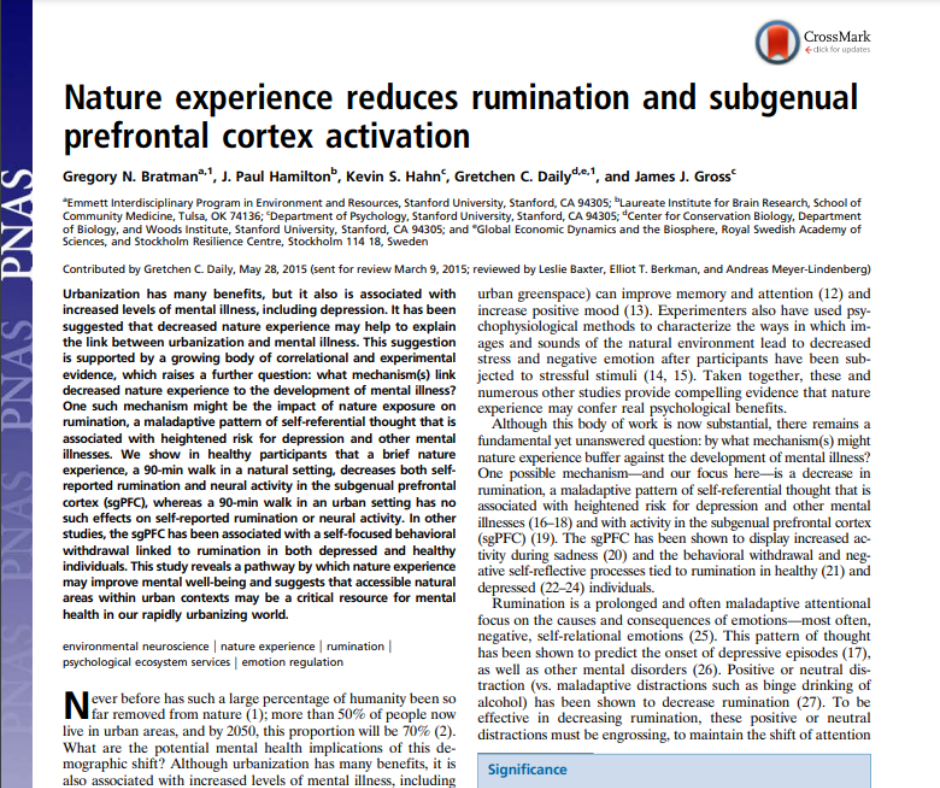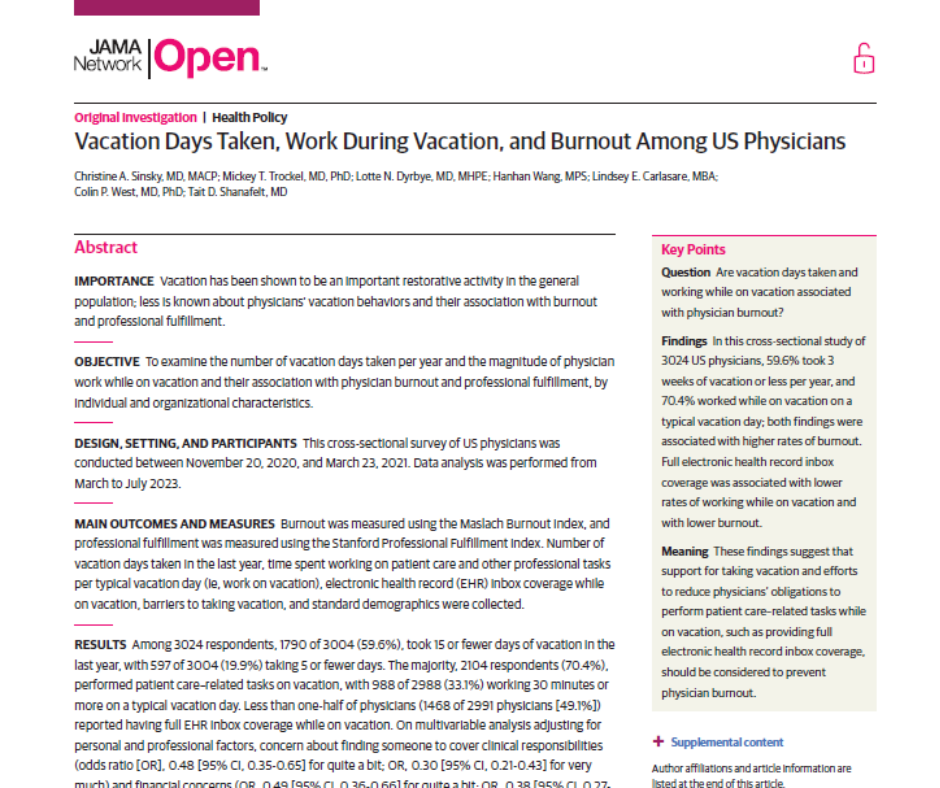The relationship between leisure activities and psychological resources that support a sustainable career: The role of leisure seriousness and work-leisure similarity
What they found: There’s a reason that research finds that Nobel prize winning scientists tend to have more hobbies than those who are good but not quite great scientists. In this study, they researchers looked at how leisure activity impacts our work. What they found is that leisure activity boosts work self-efficacy, potentially helping us perform better in our day jobs. But there was an important caveat. It wasn’t just about having a hobby, the impact of workplace self-efficacy was highest when people took their hobby serious and it was different enough from their actual work. In other words, if their hobby was too similar to their work, it actually hurt work self-efficacy.
What it means: Common advice tells us to get obsessed about something to be great at it. Be the football coach who only loves all things football. Well…research might point us in another direction. In this case, we need activities and hobbies that are different. Activities that allow us to turn our brains away from whatever it is we do during our day job. Diversify your experiences and pursuits.



